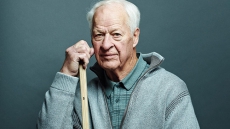Labelling healthy foods with smiley faces and offering small prizes for buying nutritious items can make kids purchase more of such foods and eat them too, suggests a new research.
"It looks like we found a very promising, low-cost and effective way of improving the nutrition of elementary school children," said study author Robert Siegel from the Cincinnati Children's Hospital Medical Centre.
"This type of programme may be a useful component in schools trying to improve the nutrition and health of their students," Siegel pointed out.
For the study, the researchers designed a two-phase intervention to improve healthful eating among kindergarten through sixth-grade students at an inner-city school in Cincinnati.
The first phase consisted of placing green smiley face emoticons by the most nutritious foods in the school cafeteria, including fruits, vegetables, plain white fat-free milk and an entree with whole grains.
Three months later, researchers introduced the concept of a "Power Plate," which consisted of the four healthy foods. Children who selected a Power Plate could receive a small prize, such as a sticker, temporary tattoo or mini beach ball.
Results showed plain milk purchases increased from 7.4 percent to 48 percent of total milk sales. Meanwhile, chocolate milk selection decreased from 86.5 percent to 44.6 percent of total milk sales.
In addition, fruit selection increased by 20 percent from 1 to 1.2 items per student per day, and vegetable selection rose by 62 percent from 0.74 to 1.2 items per student per day.
Power Plate selection increased 335 percent from baseline.
The findings were presented at the Pediatric Academic Societies (PAS) annual meeting in San Diego.




